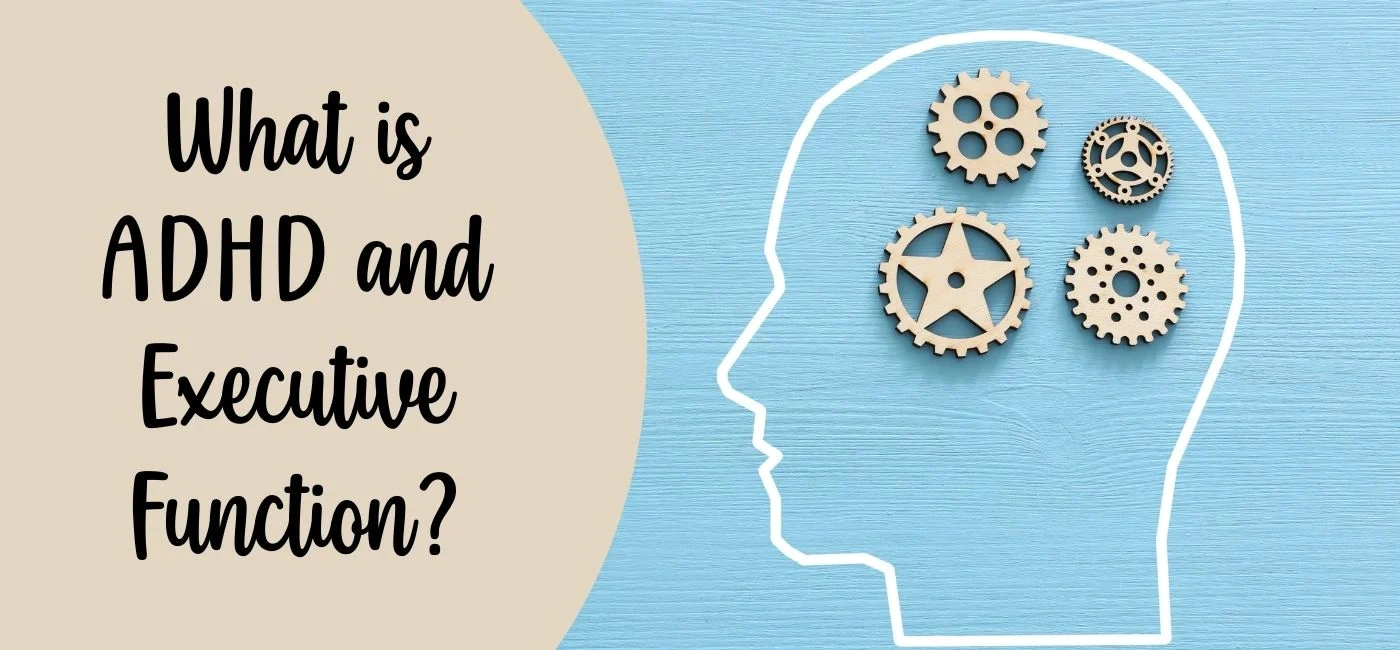ADHD and executive function are both connected. In simple words, Attention deficit hyperactivity disorder (ADHD) is a brain disorder that affects paying attention. An Executive function in ADHD is the mental process that enables us to plan things, focus attention, organize and remember instructions, and juggle multiple tasks successfully. Let’s explain one by one in detail to understand each one better.
1. What is ADHD?
ADHD is a mental disorder. And ADHD is one of the most common mental disorders in children. Usually, it is first diagnosed in childhood, but it lasts into adulthood. But ADHD affects more boys than girls. And it is generally happening in early school time
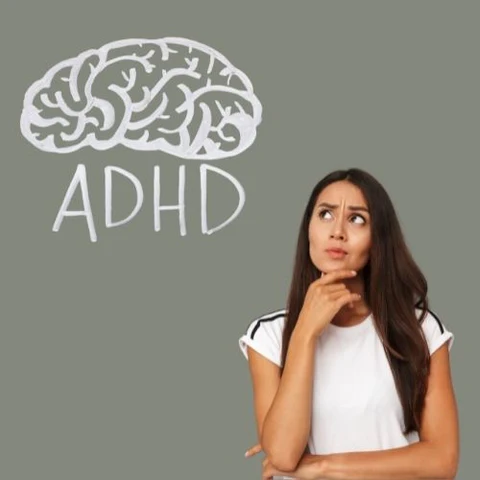
Childhood ADD symptoms can be seen clearly when a child begins to have problems paying attention. And ADHD children start such activities as disrupting the classroom or situations with schoolwork.
There is no specific number to prove the affection rate. But an estimated 8.5% of children and almost 3% of adults have ADHD. It’s a fact that ADHD prevention is not available as of now. But recognizing it early, a good ADD treatment and education can help manage its symptoms.
There is confusion between ADHD and ADD. You might have heard a debate on ADD vs. ADHD. We want to confirm that Attention deficit hyperactivity disorder (ADHD), also known as attention hyperactivity deficit disorder, and Attention deficit disorder (ADD) are the same thing.
However, ADD is the old name of ADHD, and the name was changed in 1990. But people familiar with ADD still use old as per their comfort. and there is no difference between add and ADHD. Possible symptoms or signs of ADD/ADHD.
The symptoms of ADD/ADHD in teens and adults are mainly categorized into three parts: inattention, hyperactivity-impulsivity, and others. You can understand better in the points below. It is not that you will get all these points in everyone; it can be different.
a) Inattention
- It is seen that people with ADHD behave carelessly. And repeat mistakes again and again. They also face problems in paying attention to the complete details.
- Frequently fails to complete instructions or tasks.
- People with ADHD face problems with organizing a mission and activity.
- Their attention span time remains significantly less.
- An ADHD child has poor concentration on things.
- It is noticed that ADHD children frequently avoid, dislike, or resist participating in any activities. And they don’t want to apply mental effort. And it’s a tendency to always waste time.
- They are easily distracted by unwanted thoughts.
- Adhd people have common issues of frequent forgetfulness/absentmindedness.
- I usually ignore listening.
b) Hyperactivity-impulsivity
- Engaging in fidgeting, squirming, or tapping hands and feet is an everyday activity of an ADHD person.
- They speak ascetically
- ADHD people don’t hesitate to interrupt others.
- Mostly face Problems in engaging in leisure activities quietly.
- People with ADHD Engage in multiple activities at one time.
- ADHD people face patience problems. For example, they can’t wait for their turn to come.
- A child with ADHD could not stay seated.
- Frequent restlessness or boredom are common symptoms in ADHD children.
c) Others
It is not always the case for one of the above points. Some children may have signs of other problems or conditions along with ADHD, and that’s why they are kept in the category of others. Some of which can be like this.
- they face trouble in controlling anger
- Lower self-esteem can be one of the signs.
- Anxiety
- Substance misuse and addiction.
- easily frustrating
- boring
- frequently mood changing
- depression
- a problem in engaging with relationships
2. Cause for ADHD Condition
Science is yet to find the exact cause of ADHD. Still, the research is ongoing. Even the experts aren’t sure what causes ADHD. Several things may lead to it, and there is no single cause for ADHD. Here are some of the possible reasons.
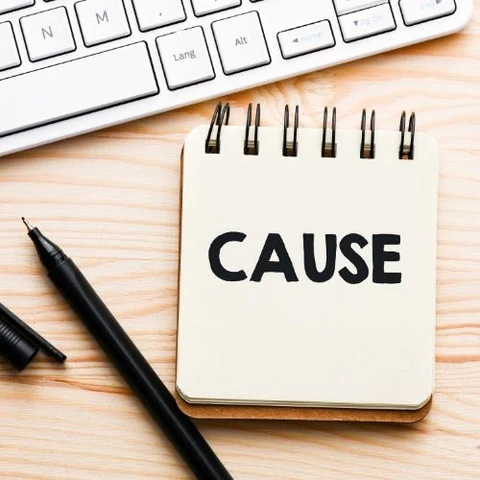
a) Genes
The research found that ADHD tends to run in families in some cases.
b) Brain activeness
Study shows that the brain areas that control attention are less active in people with ADHD. Studies show that the brains of people with ADHD tend to be smaller.
c) Brain injury
A partially damaged brain can be one of the possible causes of problems controlling impulses and emotions, and it is related to ADHD.
d) Toxins
Toxins may affect a child’s brain development, which leads to ADHD.
e) Substance abuse during pregnancy
Smoking, Drinking, Poor nutrition during pregnancy can affect a baby’s brain development.
f) Existing Disease
Some medical conditions have a higher occurrence of ADHD compared to ordinary people. For example, asthma, seizures, and gastrointestinal disorders are part of it.
3. Diagnosis of ADHD for Child
To Decide that your child has ADHD is a process with several steps. There is not a single ADHD test to confirm and diagnose ADHD. Like anxiety, depression, and specific other disabilities, many other problems can have similar symptoms.
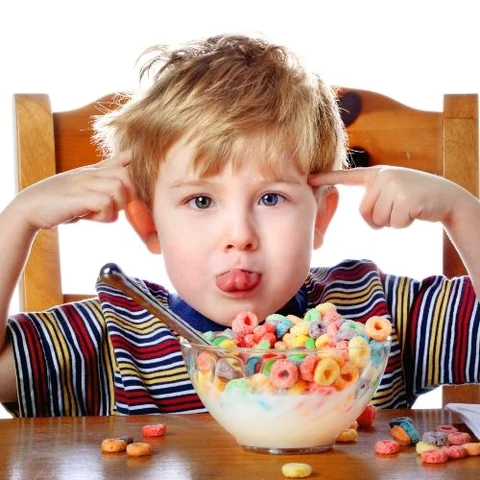
To receive an ADHD/ADD diagnosis, ADHD kids must exhibit six symptoms of inattention or combined hyperactivity-impulsivity. However, an older teen or adult needs only five from any of the above groups. The ADD symptoms should start before 12 years of age and be present in more than one daily activity. And signs need to be tracked continuously for at least six months.
One step involves having a medical Assessment, including vision and hearing tests. It is a way to rule out other problems with symptoms like ADHD.
Diagnosing ADHD in children requires a long checklist for rating ADHD symptoms and taking a people’s history. Usually, doctors ask parents, teachers, and sometimes, the child for detailed activities.
Usually, an assessment specialist asks for the below details:
- The requested time of symptoms started.
- Place the occurrence of the symptoms – for example, at home, in school, at the playground, or work.
- Frequency of the symptoms
- Experts ask about recent significant events in life, such as a road accident, death, or similar family incidents.
- Family history of ADHD
- Besides that, there may be different symptoms and different health conditions.
4. Diagnosis of ADHD for Adult
Diagnosing ADHD in adults is more complicated than in children. Diagnosing an adult with ADHD should have a moderate effect on different areas of their life, such as:
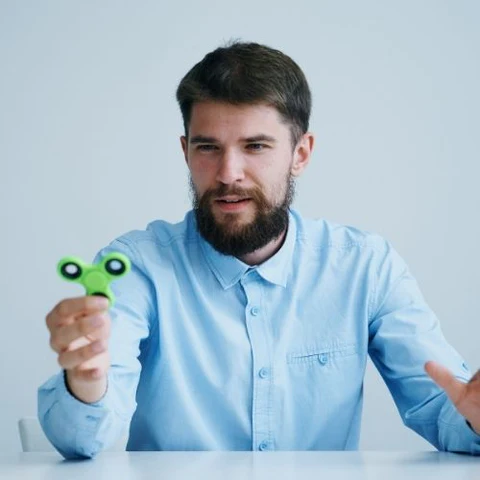
- They are underachieving at work or tasks.
- Driving dangerously is one of the aspects.
- Difficulties in adjusting with friends or family.
- Difficulty in relationships with partners or family.
Many health care professionals, including licensed mental health therapists, pediatricians, psychiatrists, psychologists, can help you diagnose ADHD. These professionals will either perform themselves or refer for an extensive medical interview and physical examination for the assessment.
5. Treatment for ADHD
There is no specific cure available for ADHD as of now. But the currently available treatments may reduce symptoms and can help in improving brain activity. We have divided the treatments into two parts, medical and non-medical. And the combination of treatments has the best results.
In behavior therapy, special training is required as the first line of treatment.
Medication treatment
Usually, some approved medicines help in treating ADHD as:
- Atomoxetine
- Guanfacine
- Methylphenidate
- Lisdexamfetamine
- Dexamfetamine
We are not recommending the above medicines. You must contact your physician for the use of medications. Well, These medicines are not a permanent cure for ADHD, and these medicines help to make better conditions like being less impulsive, feeling calmer, and learning and practicing new skills. Some medicines are for daily use. And some are for only on school days or working days.
.Be ensure the treatment is working effectively. And check for side effects or problems. If you see a sign of side effects, you need to stop instant and change therapy. It depends on your condition how long you should take treatment.
Non-medical treatments and therapy
There are different therapies to treat ADHD. Therapy is an effective treatment for additional problems like anxiety.
ADHD Planner Template Bundle
The planner is one of the best tools To Help People with ADHD focus, organize, plan, and track daily activities.
You find the planner for Yearly, Monthly, Weekly, Daily Planner Pages, Class Schedule, and Project Planner with Tracker. The Journal and Notes Pages, Goal Setting Pages, and much more are included.
we have collected some of the therapies for ADHD people as follows:
Psychotherapy and Psychosocial Interventions
Psychotherapy means providing education to you. It will encourage an ADHD person to discuss problems and effects. It helps children, even adults, make sense of being diagnosed with ADHD. And a therapist will be able to understand in a better way with the living conditions.
It is a fact that Several specific psychosocial interventions help a lot. This intervention helps individuals with ADHD and their families manage symptoms. And it helps in improving everyday functioning.
In an ADHD case, Parents and children may need specialized help to overcome negative feelings. And Mental health professionals can help educate parents about ADHD, and mental education helps develop new skills, attitudes, and much more.
It is correct that the parents have an active role in All types of therapy. A Psychotherapist can not complete his job without guardian support.
Behavioral Therapy
It is a type of psychotherapy that helps a person change his behavior. Practical assistance, help to organize tasks, or completing schoolwork are excellent examples of behavioral therapy. Behavioral therapy teaches a person with ADHD to monitor his behavior.
Giving rewards and recognitions is an excellent way to control anger. So thinking before acting is also part of behavioral therapy treatments.
Behavior therapy provides support for careers of kids with ADHD. Behavior therapy usually involves behavior management to encourage your child and minimize your child’s ADHD.
Cognitive Behavioral Therapy
Cognitive Behavioral Therapy helps ADHD people to learn how to be aware? And it guides us to accepting thoughts and feelings.
Cognitive Behavioral Therapy is an excellent ways to improve focus and concentration. A therapist always encourages a person with ADHD to adjust to life, and it helps an ADHD person think and act.
CBT is one of the best therapy for ADHD. It can help you manage your problems by changing how you think and behave. This therapy has the potential to change their behavior.
Other Treatment Program
There are multiple ways of treating ADHD. You can choose which is best effective for your child. Don’t forget to take advice from experts to treat at home.
Diet
People with ADHD should eat fresh and healthy. The diet balanced the body well. And do not avoid foods without seeking medical advice. Unhealthy foods can worsen ADHD symptoms.
Use of supplements
Some studies say that omega-3 and omega-6 fatty acids supplements may benefit people with ADHD.
6. What is executive function?
We can say that the Executive function has many cognitive skills, and executive function is required for self-control and behaviors management. These skills include self-control, working memory, and mental flexibility. Such processes allow people to follow directions, focus, control emotions and attain goals.
In simple words, the executive function is the brain’s management system. And these mental functions help us organize and manage multiple tasks in our daily routine. You can better understand that the executive function in the brain is the driver of a vehicle.
7. The Different Type of ADD/ADHD function
There are multi[ple types of executive functions. And we can understand executive functioning definition by elaborating these types. And each process has to play its role. Executive positions work in conjunction with each other. And it helps in monitoring and facilitating goals. Yes, that is right. and some of them are as follows:
Attention Control
This function helps an individual’s ability to focus attention on specific things.
Inhibitory Control
This function helps in the ability to inhibit impulses or desires to engage in appropriate or beneficial behavior.
Cognitive Inhibition
It manages the ability to tune out irrelevant information in our minds.
Cognitive flexibility
Cognitive flexibility helps to switch from one mental task to another. And cognitive flexibility allows an ADHD person’s brain to think about multiple jobs simultaneously.
Working Memory System
Working memory is a “temporary storage system” that holds several facts. And this memory helps a person with ADHD to perform a task.
8. Working Area of Executive Function skills
Executive functions play an essential role in mind. Our daily activities are connected to executive functions. some of them are as follows:
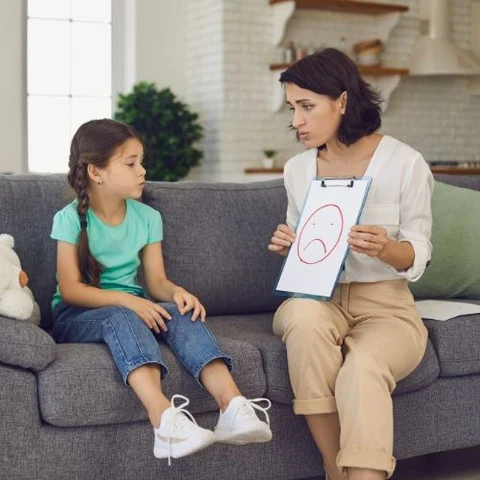
- Analyzing information, Remembering critical details, and making plans
- Focus on something to pay attention
- Keeping track of your behaviors and Regulating emotions
- Managing behavior, time, and task
- Seeing things from someone else’s perspective
- Self-regulation and organized
9. Cause of Executive Function
The research is on what causes trouble with executive function, and here are the main factors.
Differences in brain development
Differences in brain development can be one of the causes for Execution functioning. Recent research finds that ADHD people have differences in brain development, which causes trouble in the brain’s executive functioning. They’ve seen that some brain regions develop more slowly than ordinary people. And These undeveloped areas are responsible for the dysfunction.
Genes and heredity
Ita right that People who have trouble with executive function often have a family background with the same issues.
Slow processing speed
Always slow processing speed isn’t a problem with executive function. But slow processes create trouble.
10. Executive functional risk
Executive functioning skills play a critical role in our brain, and it allows any person’s ability to function normally. If there are problems in executive functioning skills, it affects people in different areas of life and affects his school, education, work, relationships, and much more.
Executive dysfunctions can significantly impact the ability to perform and plan, prioritize, organize, and control emotional reactions.
11. Best ways to improve executive function
We are happy to say that you have opportunities to improve your executive functioning. And you can manage the weaknesses that you have with simple Strategies.
You can hire organizational coach. They help in building organization and time management skills. They can also work on study skills.
School psychologists can work with your kids. they have strategies to help with social skills and behavior management. Special education teachers may work better with your kids to build academic, and social skill.
- Make tasks easy by breaking them into small steps.
- Create checklists with reMarkable 2 Mega ADHD Planner for things you need to do.
- Take time if necessary to transition between activities.
- Make a schedule with Planner Template Bundle to help you in tracking.
- Use ADHD Planner Template Bundle to help you remember and plan for long-term activities, tasks, and goals.
- Using visual aids to assist in understanding information and processes is helpful.
- Write down your due dates and important deadlines with the help of a digital planner.
Conclusion
ADHD and executive functioning are problems that are affecting people. If we don’t have complete treatment, it does not mean that we should remain silent. We can help an ADHD person with multiple treatments. In this blog, we have collected valuable information with the help of medical experts to share with you. We believe you have found something that you are looking for.

